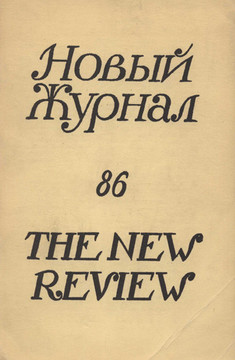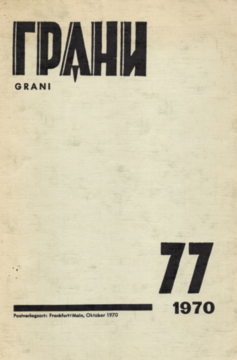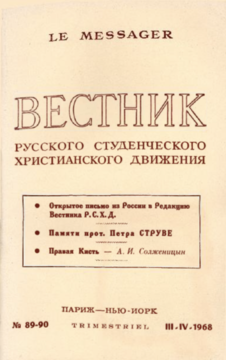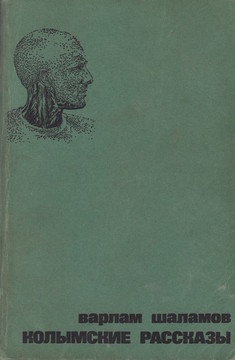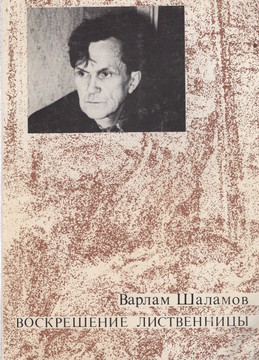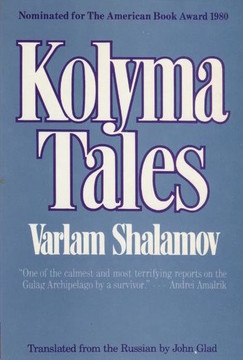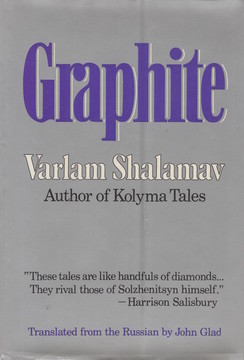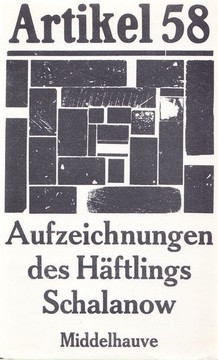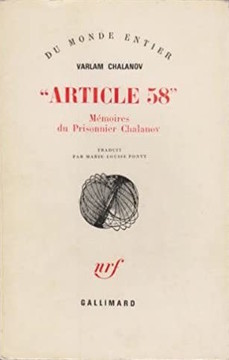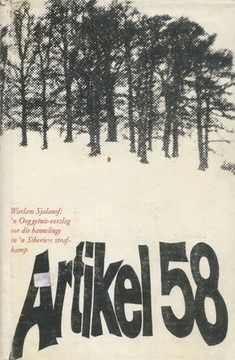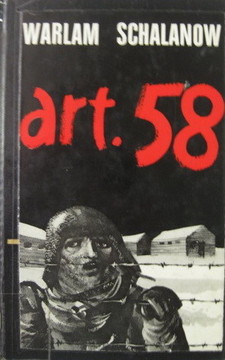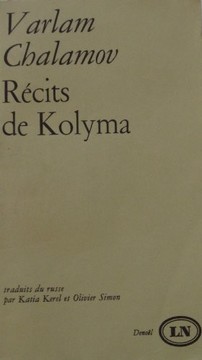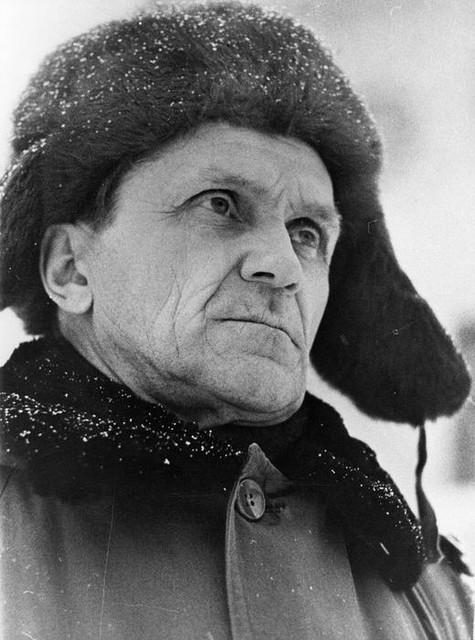
June 5 (18), 1907, Vologda - January 17, 1982, Moscow
Varlam Shalamov, son of a priest, was born in Vologda. In 1924, he moved to Moscow, where he studied law at Moscow State University from 1926 to 1928. Denounced by a fellow student and expelled from the university for “concealing his social background,” he was arrested on February 19, 1929, and sentenced to three years of hard labor for participating in an underground Trotskyite group that disseminated the so-called “Lenin’s Testament.” He spent his first prison sentence in Vishera. In 1932, Shalamov returned to Moscow and worked as a journalist. But in January, 1937, he was arrested again for “counter-revolutionary Trotskyite activity,” sentenced to five years, and sent to Kolyma.
June 5 (18), 1907, Vologda - January 17, 1982, Moscow
Varlam Shalamov, son of a priest, was born in Vologda. In 1924, he moved to Moscow, where he studied law at Moscow State University from 1926 to 1928. Denounced by a fellow student and expelled from the university for “concealing his social background,” he was arrested on February 19, 1929, and sentenced to three years of hard labor for participating in an underground Trotskyite group that disseminated the so-called “Lenin’s Testament.” He spent his first prison sentence in Vishera. In 1932, Shalamov returned to Moscow and worked as a journalist. But in January, 1937, he was arrested again for “counter-revolutionary Trotskyite activity,” sentenced to five years, and sent to Kolyma. His term was up in 1942, but he was left in the camps “until the end of the war.” On June 22, 1943, Shalamov received his third sentence: ten years for “anti-Soviet propaganda.” (As he wrote later, “during the war I was given a new sentence for saying that Ivan Bunin was a Russian classic” and for “praising Hitler’s armament,” as false witnesses put it.) In 1946, prisoner Shalamov completed a nursing course and was able to stay and work at the Dalstroi Central Hospital in the town of Debin, on the left bank of the Kolyma river. Upon returning from Kolyma, he lived 101 km away from Moscow, first in Ozerki and then in Turkmen, where he worked at the local peat works. He was able to move back to Moscow in 1956.
Shalamov wrote poetry while still in Kolyma, but prose – only after returning to the mainland in 1954. From 1961 to 1972, he published four collections of poetry in the Soviet Union: Ognivo (1961), Shelest list’ev (1964), Doroga i sud’ba (1967), and Moskovskie oblaka (1972). His prose forms six cycles: “Kolymskie rasskazy,” “Levyi bereg,” “Artist lopaty,” “Ocherki prestupnogo mira,” “Voskreshenie listvennitsy,” and “Perchatka, ili KR-2.” Only one of his short stories (“Stlanik”) was published in the USSR during the author’s lifetime in the magazine Sel’skaia molodezh’ 3 (1965).
From December, 1966, Shalamov’s Kolyma Tales were published in Russian émigré periodicals, mainly in the New York-based Novyi Zhurnal edited by Roman Gul’. In 1978, they were first published in London as a book compiled by Mikhail Geller. On February 23, 1972, Literaturnaia Gazeta featured Shalamov’s letter to the editor, in which he renounced the publications of his Kolyma Tales abroad. The letter ends with the phrase: “The problematics of Kolyma Tales has long been removed by life.”
Shalamov spent the last years of his life at the Litfond senior home facility in Tushino. Two days before he died, he was transferred to a psychiatric hospital. In 1980, his latest poems were written down by Aleksandr Morozov and published in Paris in 1981, a year before his death. The same year, the French Pen Club awarded Shalamov the Liberty Prize.
Roll up